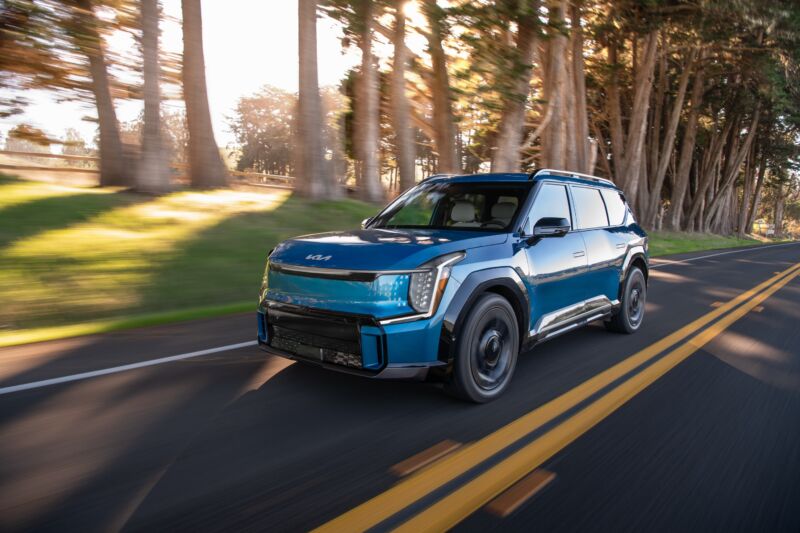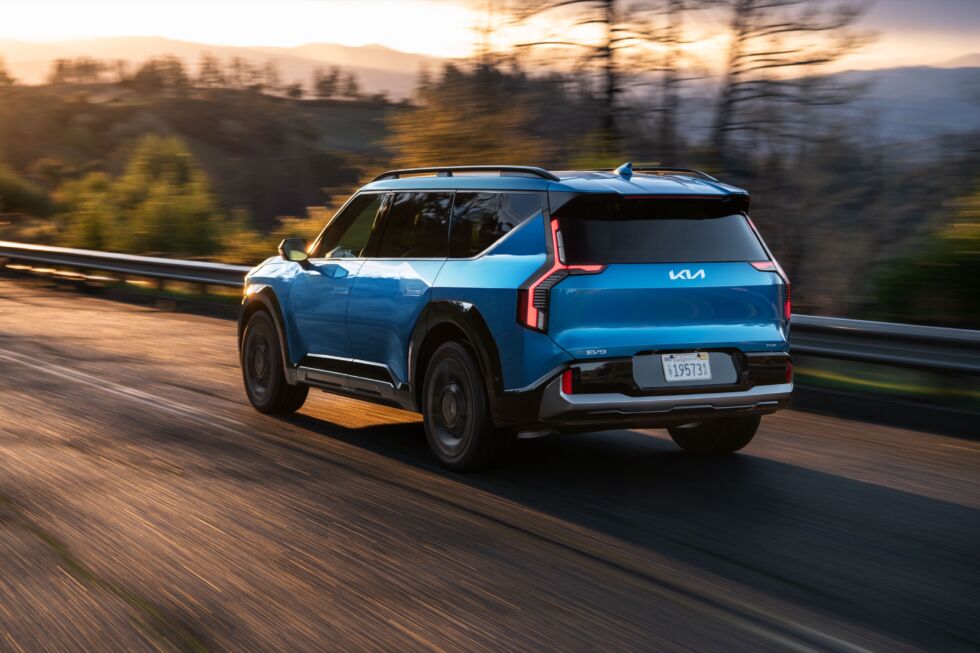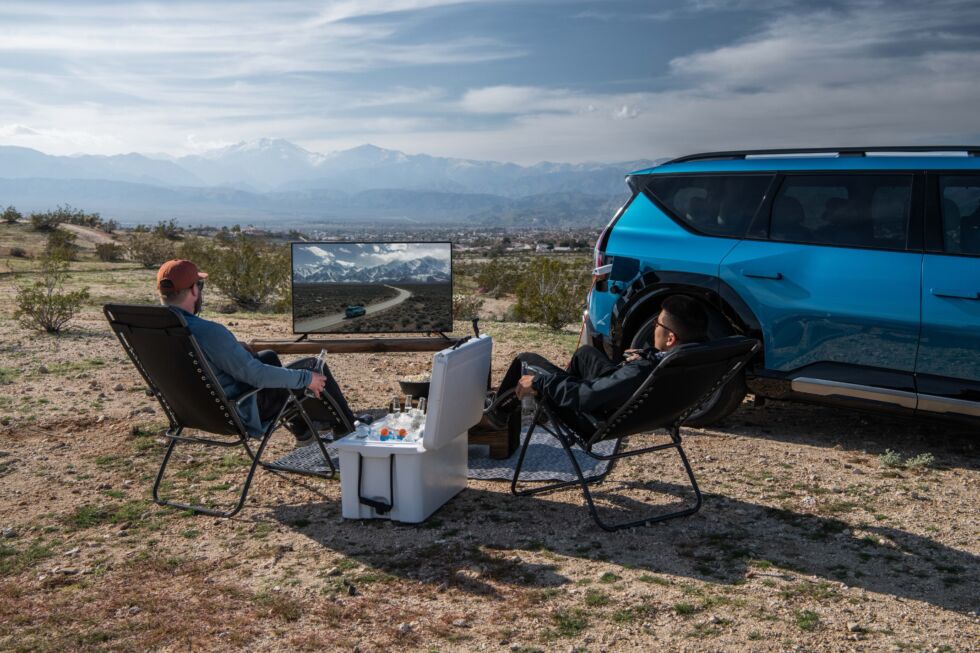mostly good —
Kia bets on edgy design, a futuristic interior, and plenty of interior space.

Enlarge / The 2024 Kia EV9 takes many of the things people love about the Telluride but does them on one of the best purpose-built EV platforms in the industry.
Kia
American car buyers love purchasing way more car than they need. Have a kid and a dog? You’d better get a Suburban. Need to tow a Hobie Cat to the lake once or twice a year? Get a full-size diesel four-wheel drive pickup. Looking at an EV for your family? Well, it had better do 400 miles at a time and charge in 15 minutes, despite you having a six-mile commute. This mentality would make a cynic say that Kia’s EV9 is a pointless exercise, but that cynic would be wrong.
The 2024 Kia EV9 is ostensibly a three-row, midsize electric SUV that in its most efficient form—the Wind RWD Long-Range trim—will do a claimed 304 miles (489 km) of range, but it’s also Kia’s flagship model and the vehicle that seems to give us the best look at the formerly cheap-and-cheerful brand’s more upscale future.
The EV9 is the latest vehicle based on the E-GMP platform that underpins the Ioniq 5, EV6, and Genesis GV60. Like those vehicles, it features a skateboard-style chassis and is available in rear- or all-wheel drive. Power ranges from 201 hp (150 kW) in the entry-level Wind RWD model to 379 hp (283 kW) in the Land AWD and GT-Line models. There are two available battery packs, with the smaller coming in at 76.1 kWh and the long-range pack rated at 99.8 kWh.

Enlarge / The larger size of the EV9 means you won’t get quite the same range efficiency out of the same powertrain as the smaller E-GMP cars. Not that it matters on the commute, school run, or grocery errand.
Kia
The conversation around electric vehicles, especially with new buyers, tends to be dominated by range. The claimed range figures for the EV9 won’t light anyone’s hair on fire, particularly with the GT-Line model and its not-so-whopping 270 miles (434 km) or the bottom-of-the-barrel Light RWD model that only offers 230 miles (370 km). Still, these figures should prove to be ample for most Americans.
Like other E-GMP-based vehicles, the EV9 is built on an 800 V architecture and supports DC fast charging at up to 235 kW. The onboard AC charger is rated at 10.9 kW, and for home-based level 2 charging, Kia is partnering with Wallbox and is pushing that company’s Quasar 2 home charging setup. While the Quasar’s vehicle-to-load and vehicle-to-home capabilities are neat, its $4,000-plus price before installation isn’t, and neither is Kia’s decision to not sell them through dealers, preventing new EV buyers from wrapping the system into their car loan.
On the road, the EV9 is just nice. It’s not particularly quick, even in its most performative variant. Kia claims a 4.5 second 0–60 time, but that’s only if you pay for the acceleration boost unlock (more on this later), and while that’s not slow per se, it won’t impress veteran EV drivers. Ride quality is also average. Like many other Kias, the suspension is tuned on the slightly firmer side, but it’s not harsh, even over very broken pavement.

Enlarge / Only the EV9 GT-Line features an exterior vehicle-to-load AC outlet.
Kia
The EV9’s steering is perfectly ignorable in most drive modes, but it leans hard into artificially heavy territory in sport mode. The EV9 has a super long wheelbase—122 inches (3,098 mm) vs. the Telluride’s 114.2 inches (2,900), despite being essentially the same size—but it lacks any kind of rear-wheel steering, meaning that parking lot maneuvers are a bit of a chore—and don’t even think about u-turns unless you’re ready to do a very fast three-point turn.